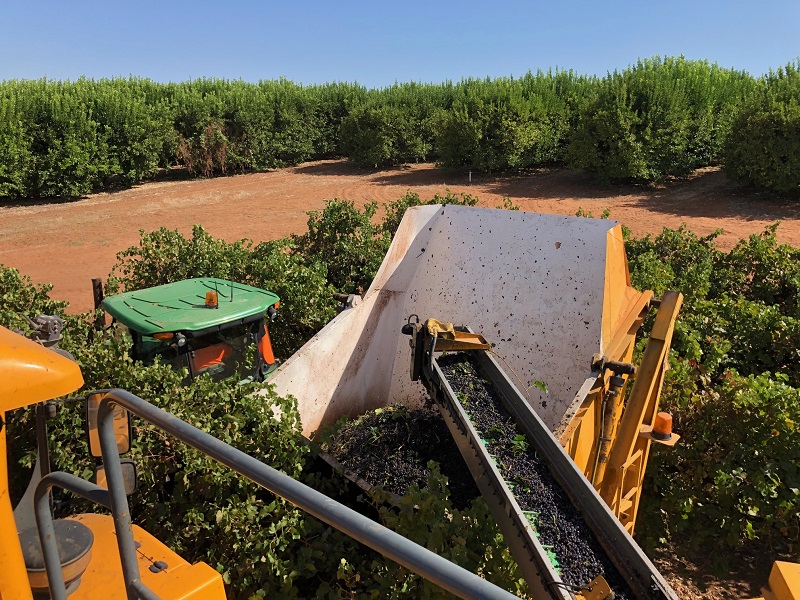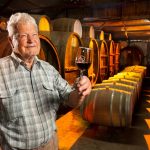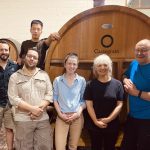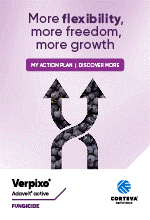Yarra Valley-based company Hawk Engineering walked away with the Engineering prize at this year’s Wine Industry Impact Awards held in Adelaide in October for its development of on-board technology that accurately measures the weight of grapes in bins, trailers or trucks. Journalist Samuel Squire spoke to Hawk Engineering’s director Owen Norman for the story behind the development of the technology.
Hawk Engineering, based in Victoria’s Yarra Valley, was recognised at the WISA Wine Industry IMPACT Awards held in October for filling an important gap in the wine industry with a niche product designed to improve vineyard and winery operations during vintage.
Through its newly developed, smartphone-integrated Weigh Bar® load cell technology, grapegrowers can gain real-time data, including accurate weight readings, to aid the vineyard-to-winery process and improve grower and transporter compliance to new amendments under the chain of responsibility (COR) laws.
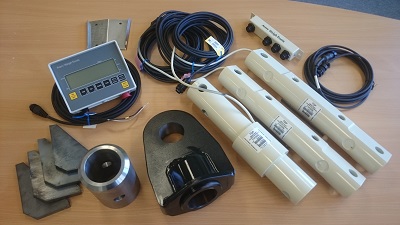
Hawk Engineering, in partnership with Domaine Chandon in the Yarra Valley and Riverland Heavy Vehicles Services in Renmark, South Australia, has developed on-board scale kits to suit grape tote bins, grape side tipping trailers and transporter trucks.
The on-board scales accurately record the weight of the grapes within a one per cent margin of error as they are harvested in real time and without the need for a separate weighing process. The Weigh Bar load cell kits are coupled with a wireless app-based indicator that utilises smartphone technology, allowing operators and growers to manage their grapes more efficiently at harvest time.
The weight data is recorded with the touch of a button and this data is then available in real time anywhere in the world via an integrated Cloud service.
Director of Hawk Engineering, Owen Norman, said the company’s Weigh Bar load cell technology fills a production gap that will benefit grapegrowers and improve efficiency during harvest. Norman adds, although the technology has been used in other areas of farming and viticulture, Hawk Engineering’s scale kits were developed to suit various types of grape bin trailers.
“Hawk Engineering has developed on board weighing solutions for other areas of farming for many years but has recently partnered with Domaine Chandon in the Yarra Valley and Riverland Heavy Vehicle Services in Renmark to develop scale kits to various types of grape bin trailers,” he said.
“Having accurate weight data in the vineyard allows the operator and grower to make data driven decisions, whether that be recording accurate yield data, loading trucks correctly or loading a grape press to optimal capacity.
“This technology can be fitted to a whole range of agricultural equipment that needs weight data to be recorded, not just for grape harvest equipment.”
One of the major driving factors behind the development of Hawk Engineering’s load cell technology, Norman explained, was the amendment of the chain of responsibility laws in October last year.
“On 1 October 2018, the COR laws, which form part of the Heavy Vehicle National Law, were amended to make it clear that every party in the heavy vehicle supply chain has a duty to ensure their transport activities are carried out safely,” he said.
“When the COR laws said ‘every party’, what it meant was all levels in the supply chain can be held responsible. In the case of a winemaker, it can be owners, executives, managers, vineyard workers or drivers.
“Penalties and fines for COR breaches have always depended on the circumstances of the offence, however the new penalties introduced in 2018 include a maximum of five years imprisonment, a $300,000 fine for individuals or a $3 million fine for corporations.”
Owner of South Australia’s Riverland Heavy Vehicle Services Matt Himsworth said his company had installed Hawk Engineering’s load cell technology on tote bins for growers. He added that the technology has also been applied to trucks for the transport of winegrapes between vineyard and winery and removes operator error from load capacities when transporting grapes interstate.
“For us in the Riverland, the whole project is about COR laws and ensuring loaded trucks are complying with legal load limits on the road and upon entering wineries. Not everyone delivers locally, which means a lot of grapes are delivered across state borders. This new technology maximises optimum legal load capacity and removes user error completely,” he said.
“Due to new COR law amendments, the chain of responsibility goes all the way down from owners to drivers. Wineries are cracking down on COR by not accepting overloaded trucks on site.
“Hawk Engineering’s Weigh Bar technology effectively removes user error with weight and load capacity completely — no more operator error. I think it provides peace of mind for growers and wineries.”
Himsworth adds, “Overall the project took between three to six months to complete. Once everything was finalised from Hawk Engineering, my company started fitting their load cell technology to agricultural equipment and shipped it off to our customers”.
Norman told Grapegrower & Winemaker, “In today’s competitive environment, data driven decisions are paramount. Grapegrowing is no exception to the rule. Getting accurate yield data and handling grape movements as they come off the harvester has traditionally been difficult to accurately record and manage the incoming vintage”.
“Whether the vineyard is set up to cart directly to a press, into storage or onto a truck for further transport, knowing the weight of the grapes as they come off the harvester in real time allows the grapegrower to make clear decisions and keep accurate records in this time critical operation,” Norman said.
Operations winemaker at Domaine Chandon, Adam Keath, said the technology developed by Hawk Engineering is helpful to vineyard operations during harvest in more ways than grape weight data.
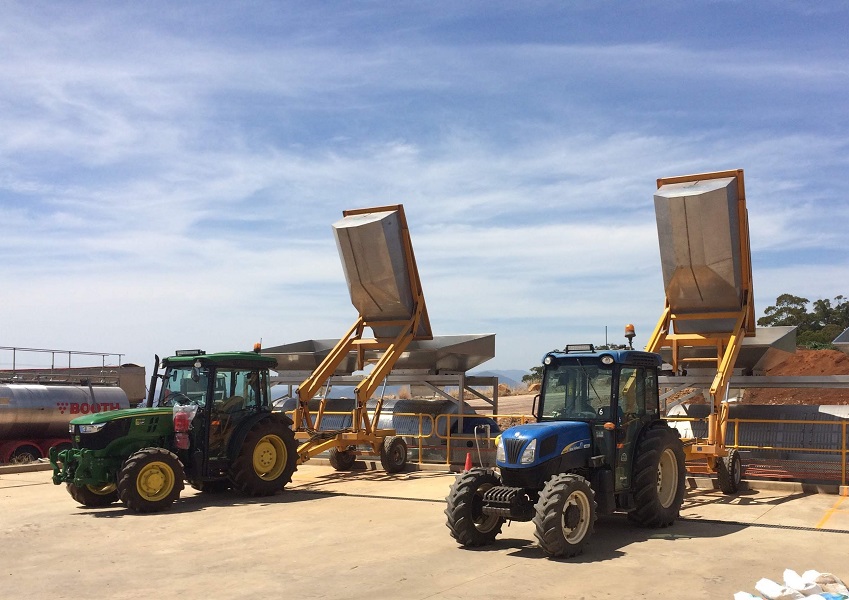
“We were changing the way we process our grapes in the vineyard. We wanted to get rid of double handling using trailer bins, replacing weighing from the forklift [so we can] tip the grapes straight into the press form the tractor,” he said.
“Aside from cutting out the extra handling of grapes that could potentially affect weight data during harvest, we are also now able to analyse grape yield data from previous vintages. This makes it easier to track which parts of the vineyard are doing well and which parts need improvement.
“We press our grapes on site in the King Valley and the data from using the load cell technology allows us to tip the grapes straight from the trailers into the press once the yield is weighed from the trailer bins.”
Norman said that the scale technology is not limited to a standard truck size, style or load capacity and can be custom-fitted either by Hawk Engineering, a local workshop, or by the client.
“Our scale kits can be fitted to existing as well as new trailers. Growers can either fit the scales themselves or we can work with a local engineering workshop to carry out the upgrade for them,” he said.
“This type of technology has many uses in different types of agriculture and also industrial applications; weight data allows the operator and business owner to make data-driven decisions, reducing risk and improving efficiencies.”
Norman advocates for the new scale technology because, as he mentions, “in some ways the wine industry is no different than many other forms of agriculture and industry; OH&S is paramount and having data to be able to make better decisions allows business owners to improve efficiency and, in turn, increase profit”.
This article was originally published in the December edition of the Australian & New Zealand Grapegrower & Winemaker.

